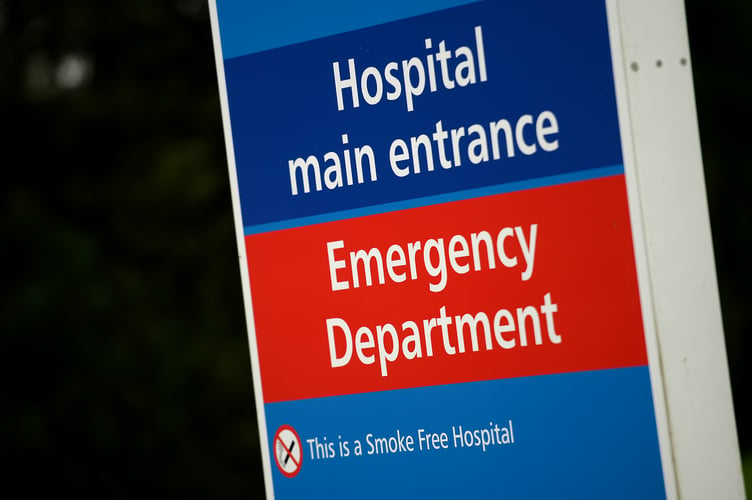Patients' experience at Royal United Hospitals Bath worsened last year, new survey data suggests.
Hospital regulator the Care Quality Commission, which carried out the survey, said the long-term worsening of patient experience in NHS emergency care cannot be ignored.
The 194 respondents in Royal United Hospitals Bath NHS Foundation Trust gave the hospital an average of 7.4 out of 10 for overall experience in 2022.
It is down from a score of 8.4 out of 10 when the survey was last done in 2020.
Nationally, 18% of respondents gave a score of four or lower, with zero being a very poor experience. It was a leap from 8% two years prior.
The CQC has previously said high call volumes and staff shortages in NHS 111 are leading to delays in people receiving medical advice and more people going to A&E.
A lack of available GP and dental appointments means NHS 111 cannot always send people to those, leading to people being asked to call 999 or go to A&E instead, it added.
The survey also shows the proportion of people feeling they were treated with respect and dignity in hospitals across England declined from 81% in 2020 to 72% last year.
Patients gave Royal United Hospitals Bath a grade of 8.6 out of 10 on the matter – down from 9.3 in the previous survey.
Dr Adrian Boyle, president of the Royal College of Emergency Medicine, said: "These results give a view of urgent and emergency healthcare through the eyes of the patient and reflect the challenges medical professionals working in urgent and emergency care experience every day."
"Every clinician wants to provide the best care possible. No one wants patients to have to wait excessive amounts of time to be treated, or for that treatment to be administered in an environment – such as a corridor – which lacks privacy."
Dr Sean O’Kelly, the CQC’s chief inspector of healthcare, said staff are working extremely hard amidst challenging circumstances.
However, he added: "We cannot afford to ignore the long-term decline shown in relation to issues like waiting times, information provided when people leave to go home, access to pain relief and emotional support."
The proportion of patients across England who said they waited longer than four hours to be examined in A&E last year more than quadrupled to 17% – up from 4% in 2020.
In Royal United Hospitals Bath, patients gave a score of 5.1 out of 10 regarding the length of time they waited to be examined – a fall from 6.6 two years earlier.
An NHS spokeswoman said staff have delivered significant improvements since this survey was carried out, with faster ambulance response times and a greater number of patients being seen in A&E within four hours in June.
She added: "This is despite unprecedented levels of demand, pressures on patient flow and industrial action."
She said the findings also demonstrate how patients value the "hard work and care from staff".
RUH Chief Nurse Toni Lynch said: “We are grateful to everyone who took the time to share their experiences in this survey.
“We ask that people keep giving us their feedback, both positive and negative. We’re listening and using this feedback to act on what matters most to the people we care for.
“We were pleased to hear that we are doing particularly well with ensuring people are set up with any further support they need after leaving hospital, and with explaining any tests that are needed.
“However, we know we have areas that we need to work together to improve, and we are sorry to anyone who had an experience that was less positive than it could have been.
“We especially recognise there are times when people are waiting much longer than they wish to. In the last six months, since this survey, we have reduced our waiting times by 20% and we are continuing to work to reduce this further.
“If you have feedback you would like to share, please use the contact details on our website.”




